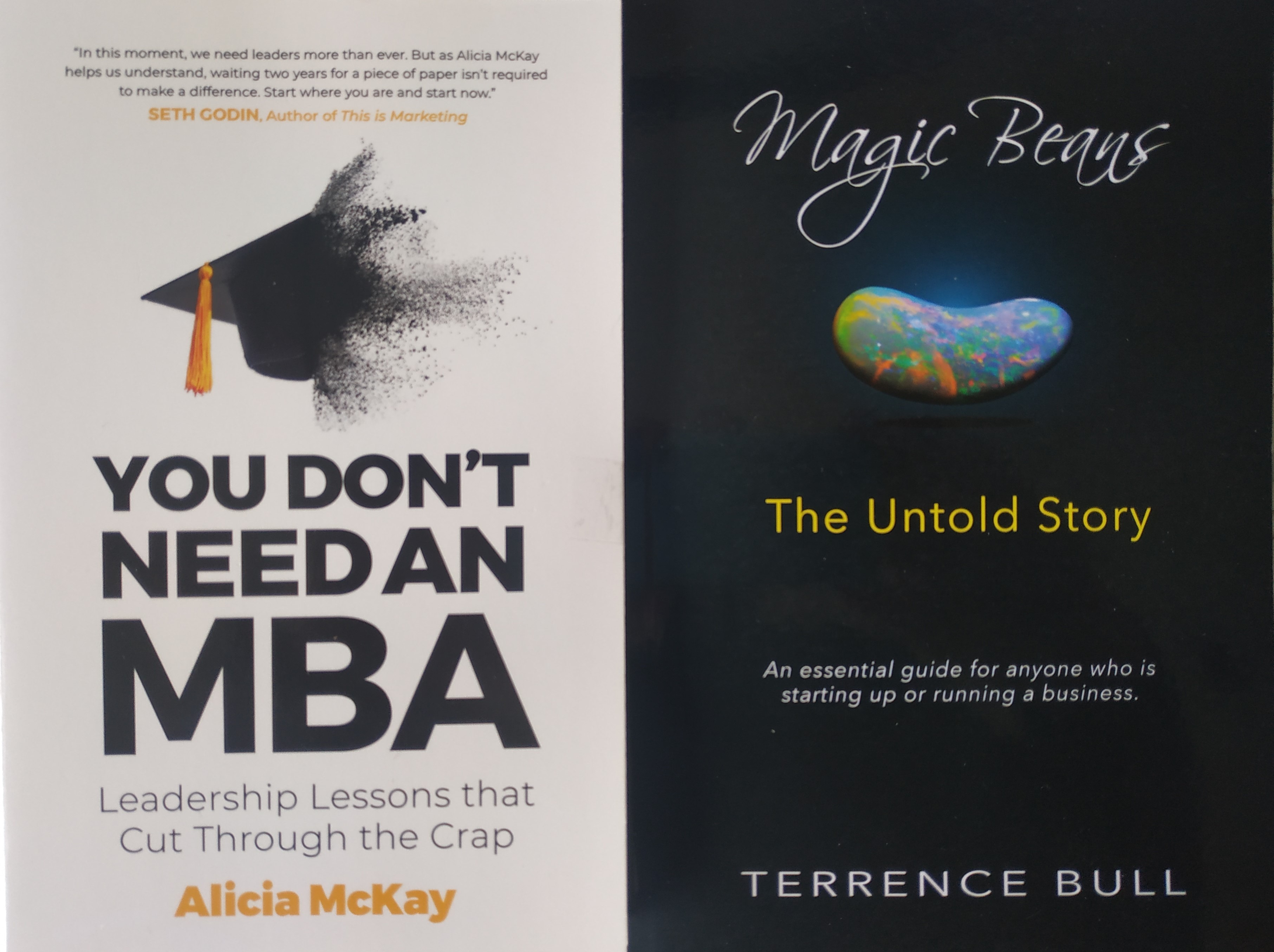

How to be an expert in business
Book Review: Working books - insights from four coaches who make a living from advice.


Book Review: Working books - insights from four coaches who make a living from advice.
Business as usual is not a phrase you hear much since the global pandemic of Covid-19. Yet publishers and authors are still pumping out books that stress the commonalities of doing business.
They belong to a resilient genre that takes little notice of passing events and, in some cases, even fads. Some are self-published, passing on a lifetime’s experience in the hope it will be of some benefit.
Others are little more than a printed version of PowerPoint presentations, replete with fancy graphics, cluttered diagrams, bullet points and other ephemera that delight the eye.
As a result, they are often unreadable in the sense of what learners call chapter books – ones where only the flow of words and sentences carry a story or thoughts.
One response is to reduce these books to a series of boxes that usually state the obvious and are little more than common sense.
Each of the books in this column refer to the Covid-19 pandemic. But this is mainly because they were conceived during a period of lockdown rather than being a specific response to it. Consequently, you won’t find advice on dealing with the business implications of political, social and economic decisions that have dominated since early 2020.
Elements of leadership
Wellington writer Anna Hughes, on her website Books That Work, reviewed some examples before apparently giving up. In one case she reduced a book on leadership to five basic elements: purpose, culture, people, communication and time. No one could challenge these as being irrelevant. But neither do they explain much, though she notes the publicly known shortcomings in workplace culture (Weta Workshop, Auckland and Lyttelton ports, MediaWorks) as well as critical inquiries into government agencies (Civil Aviation, Parliamentary Services, NZ Transport Agency, Human Rights Commission, to name a few).
I could also add more recent cases of culture or leadership failures, such as the arts (NZ Opera), sport (cycling and gymnastics), universities, banks, and law firms.
Hughes reduces Alicia McKay’s You Don’t Need an MBA, which claims to “cut through the crap” in leadership lessons, to five elements:

McKay teaches this stuff, using her experience as a young woman who has learned the hard way about business while also raising a family of three girls. She points out she is not a former CEO, doesn’t have an MBA or PhD, and is not a white man over 50. However, she reads a lot and is generous with quotes from other books.
‘Hidden intelligence’
Rob Pyne is a white male but doesn’t look over 50. His book, Unlock, is about “leveraging the hidden intelligence in your leadership team”. He comes from the advertising industry and moved to Australia from Britain.
He is a qualified psychologist and applies that knowledge to help improve collective decision-making, based on both his own observations and the research of others. I am not qualified to question any of his findings or suggestions.
He offers three ingredients (in ascending order) of improving team leadership: include women to raise “group IQ”; give everyone a chance to converse or contribute; and be aware of individuals’ social sensitivities, or have the ability to “read” others’ feelings.

On empathy, he suggests looking from an employee’s point of view – what are they thinking or feeling, what do you want them to feel at the end of a presentation?
Empathy is one of Pyne’s three “Es” – the others being Explanation and Expectation – that are the basis of communication.
Empathy and more
I picked empathy because it leads on to Em-Pa-Thy, the latest management book from Harold Hillman, who is male, probably not 50 and definitely not white. He is one of the best-known Kiwis in this field after moving here from the US in 2003.

Hillman’s The Impostor Syndrome (2013) was a business book of the year and struck a chord with many who felt they may have been over-promoted, even if this wasn’t the case.
The impostor syndrome arises from emotional intelligence and was originally coined in 1978 by the study of 150 high-performing women, many of whom were of an ethnic minority. It now applies to all who have a “perceived fraudulence” or feelings of self- doubt and personal incompetence, despite their education, experience and achievements.
Em-Pa-Thy lacks the cut-through of Impostor but it is in tune with the time by emphasising “diversity, inclusiveness and authenticity”.
Fonterra’s chief executive, Mike Hurrell, is one of many who endorse Hillman’s approach to emotional intelligence in the workplace. Again, I am not in a position to quibble and Hillman is at least on our home turf rather than a remote overseas expert.

Climbing the beanstalk
Also on his home ground is Terrence Bull, who is white and over 50, judging by the number of businesses he has run over 35 years. Like Pyne, he has a background in advertising as well as being an inventor (electronic coin-reading machine), marketing software developer, musician, and an aid worker in Kenya. He returned to New Zealand in 2015 and is based in Hawke’s Bay.
His book on starting up a business, Magic Beans, is named after his programme of one-hour sessions. It is woven around the 18th century English fairy tale of Jack and the Beanstalk. Each of a dozen “beans” is devoted to the necessary requirements of a business, ranging from Vision and Belief to Ownership and Control.
Bull’s key message is that building a business is more than just creating a job for yourself. It takes a lot of planning, hard work and commitment, which is sensible advice for anyone. Bull’s previously self-published books are mainly on religious and fantasy themes.
You Don’t Need an MBA, by Alicia McKay (Major Street Publishing)
Unlock: Leveraging the hidden intelligence in your leadership team, by Rob Pyne (Rob Pyne)
Em-Pa-Thy: The human side of leadership, by Harold Hillman (Bateman Books)
Magic Beans: The untold story, by Terrence Bull (Woo Publishing)
Nevil Gibson is a former editor at large for NBR. He has contributed film and book reviews to various publications.
This is supplied content and not paid for by NBR.